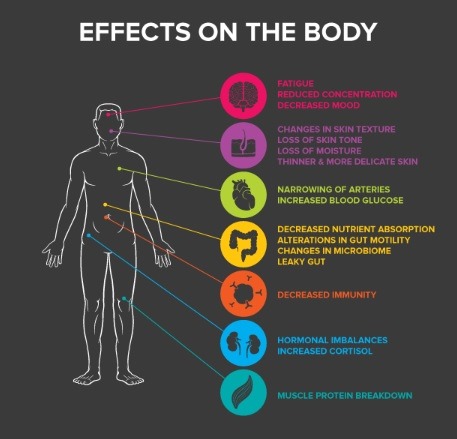Stress. Is it really all that bad?
Source: Unsplash
Stress. It’s a term we are all too familiar with. Over time it has come to mean different things to different people; it is synonymous with mental pressure, but that's not the end of the story.
Stress is a normal part of life that is designed to motivate us, keep us safe and help us to learn and grow. But it can also cause us significant problems.
In a medical or biological context stress is a physical, mental or emotional factor that can cause bodily or mental tension. It's also described as something people feel when they perceive that the demands being placed on them exceed their personal and social resources; a demand being made upon the adaptive capacity of the mind or body.
There are two types of stress. Eustress, a thrilling, exciting and energising kind of stress, and distress, which is associated with suffering, wearing you down, and causing worry or misery. Regardless of the type of stress you experience, your body responds with the same biochemical reactions. The key is to have time to recover, recharge and "de-stress" in between events so that the stress does not become chronic or maladaptive.
Chronic, prolonged, uninterrupted stress is the most damaging to our bodies. When we are stressed our HPA (hypothalamus, pituitary, adrenal) axis releases a powerful cascade of neurochemicals and hormones to prepare us for action; to fight, flee, freeze, or fold. If we don't take action and use up these vital chemicals in the right way, they can build up in our systems and create or worsen health problems.
During the initial stages of stress, we can actually feel energised and pumped because our body is giving us plenty of energy to manage our stressors. But then if our stress continues, we may notice that our system starts to be overly sensitive and become even more sensitive to stressful stimulus; we become over-responders to stress.
Long term, chronic stress can cause or influence many medical and psychological conditions, including depression and anxiety, sleep problems, digestive issues, cardiovascular disease, metabolic disorders, hormonal imbalances, weight gain/loss, and lowered immunity.
Stress effects on the body
We can't always take all the stressors out of our lives but there are ways we can support our bodies using food and lifestyle adjustments to recover and build resilience. This includes:
a diet high in fresh fruits and vegetables (especially green leafy vegetables), good quality protein, complex carbohydrates, oily fish, and nuts and seeds because we become depleted of antioxidants and key vitamins and minerals like magnesium, B vitamins and essential fatty acids;
getting adequate sleep and taking time out away from your stressors;
regular exercise and movement have been shown to reduce the effects of stress and help us to be more resilient;
identify the thing that create stress and plan how you can reduce/minimise/eliminate the stressor or consider how you can change your perception of the stressor;
make a list of ways that you can increase self-care into your daily, weekly, monthly activities and then lock time into your calendar to take self-care action;
get professional help by way of a general practitioner, counsellor, psychologist, nutritionist or other specialist to support your wellbeing.
I have developed a program specifically to support my stress-affected, high performing clients that helps them increase their lost energy, reinvigorate their mojo, improve sleep quality and sharpen their mental capacity. It includes nutrition and lifestyle recommendations that are personalised to their individual lifestyle and environmental requirements. If you are struggling to keep on top of your stress and you believe that chronic stress is taking the wind out of your sails, then it’s time to take action.
If you're interested in finding out more about my Stress Less | Live More program or any of the services I offer, book in a a free discovery session and we can have a chat about how to support your health and wellbeing.

